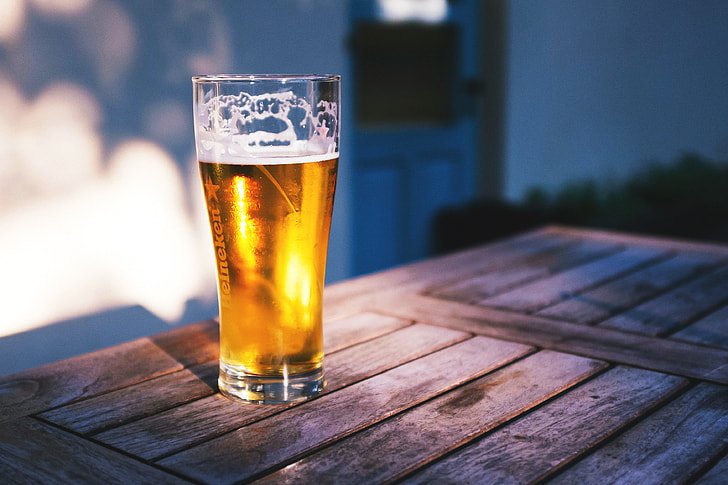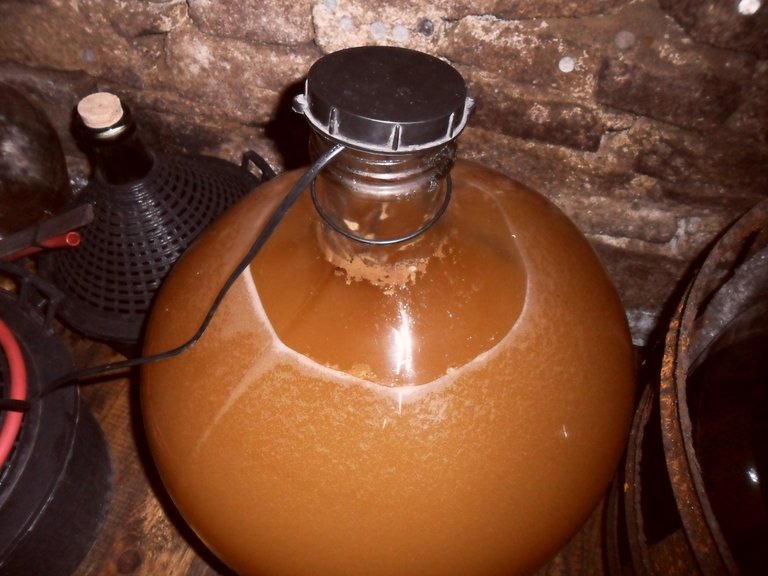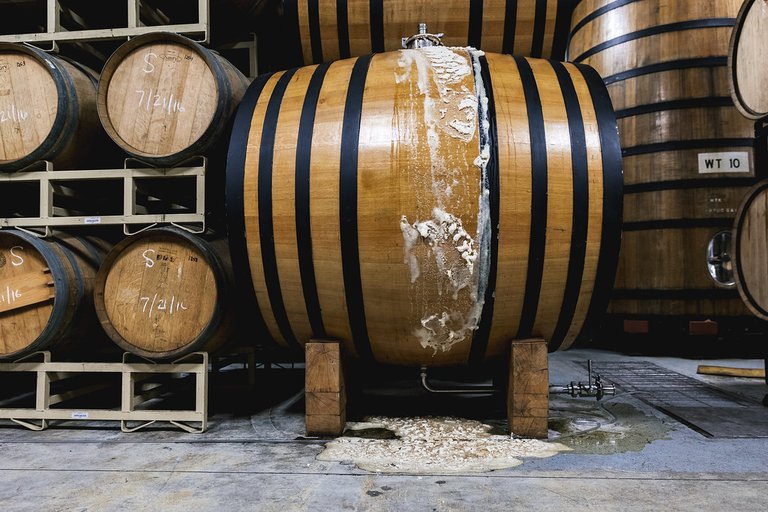The Science of Beer - A Combination of Biology and Chemistry
We are all familiar with Beer and while I haven't had a taste of it before where I live, I can count about 2 brewery just a few Kilometers away and although some people might have not had a taste of it elementary biology on fermentation has been able to explain how it is made but let's quickly run through the basics of how it is made so we can have a clear direction.
Beers are alcohol made from the fermentation of grains like Barley, or Wheat which are preserved and flavored with Hops for taste. The grains are malted and dried and then immersed into hot water allowing them to release Sugar which is referred to as Wort after which flavor and yeast is added so the sugar is fermented into ethanol and Carbon dioxide. This is done in a sealed container or chamber to carbonate the drink. The different types of beer is determined by the grain used, the variety of the Hop used, and how they are processed.
Before you think that yeast are the only microorganisms in beer, you should rethink because breweries use yeast like Saccharomyces cerevisiae, they also use wild yeast like Brettanomyces, as well as bacteria like Lactobacillus,and Pediococcus. Making beer is a combination of biology and chemistry, so we can say it has to do biochemistry because while chemistry place a lot of role in the making of yeast biology is what is required to turn the sugar water to what people enjoy.
We cannot talk about the special method of beer creation if we neglect the beer purity law of 1561 because before then, people were using different ingredients and spice to make beer. The law ensured that beer should include Malted barley, Hops, Yeast and Water where the malted barley gives the sugar which create ethanol, amino acids, and lipids required for yeast growth. The Hops gives the flavor while balancing the sugar taste the malt gives and gives essential oil for long lasting beer. The yeast in other to survive converts the sugar to ethanol which is an anti-bacterial, and extend the life of the beer. We cannot skip water in the making of beer because it is an essential ingredient which makes sure the yeast will process the carbohydrate well. As a child growing up I hated the beer waste that came out from the Guinness Factory in my area because it smelled a lot and now I understand why.
In the process of malting, Barley is converted to malt where the Barley is allowed to get wet so it begins to germinate but not fully so the growth is stopped by Kilning which literally means drying out after which is it then grounded and mashed in a process where water is added and starch is hydrolyzed. For Starch to be converted to simple sugar that can be fermented, two enzymes Alpha-amylase and Beta-amylase are produced by the malt during the process of mashing.
If there is no ethanol, then there is no beer. The process of yeast turning the Wort to ethanol starts with an aerobic respiration and then moves to an anaerobic one. When this is done, we have a beer-like substance, but we need to let it age either for days or for months for the taste of the beer which would be either improved on or reduced so the beer maintain its already known taste. After this a Second fermentation is done and this time around for the purpose of carbonation. I usually see adverts of people opening and drinking beer where they have this mouth full even to their lips. That is the effect of the second fermentation which isn't to get ethanol but rather for carbonation.
In all we should remember that alcohol is a depressant for humans, slowing the heart rate and chemical reactions in the brain. With beer, there is no difference because it is alcohol and for people taking it, moderation is key. Since the alcohol weight in beer is low seeing that there is a 3 beer limit, some say it has its own health benefits such as containing antioxidants as a result of bioactive compounds Phenols and Melanoidins present in it. But then over-consumption of beer my friend can lead you become dehydrated, raise your blood pressure, and alcohol poisoning. My friend, for me there is no safe limit for bear intake but if you are one that love it, then moderation is key and as they will say, Drink responsibly.
Reference
https://www.pedalhausbrewery.com/the-science-of-beer
https://www.lib.uchicago.edu/collex/exhibits/somethings-brewing/beer-and-brewing-science/
https://www.ncbi.nlm.nih.gov/pmc/articles/PMC9724654/
https://www.tandfonline.com/doi/full/10.1080/00343404.2023.2216066
https://www.ncbi.nlm.nih.gov/pmc/articles/PMC7175304/
https://www2.hse.ie/living-well/alcohol/health/effects-on-your-body/blood-pressure/
https://www.heart.org/en/health-topics/high-blood-pressure/changes-you-can-make-to-manage-high-blood-pressure/limiting-alcohol-to-manage-high-blood-pressure



Thanks for your contribution to the STEMsocial community. Feel free to join us on discord to get to know the rest of us!
Please consider delegating to the @stemsocial account (85% of the curation rewards are returned).
Thanks for including @stemsocial as a beneficiary, which gives you stronger support.
Congratulations @ireti! You have completed the following achievement on the Hive blockchain And have been rewarded with New badge(s)
Your next target is to reach 900 replies.
You can view your badges on your board and compare yourself to others in the Ranking
If you no longer want to receive notifications, reply to this comment with the word
STOPCheck out our last posts: